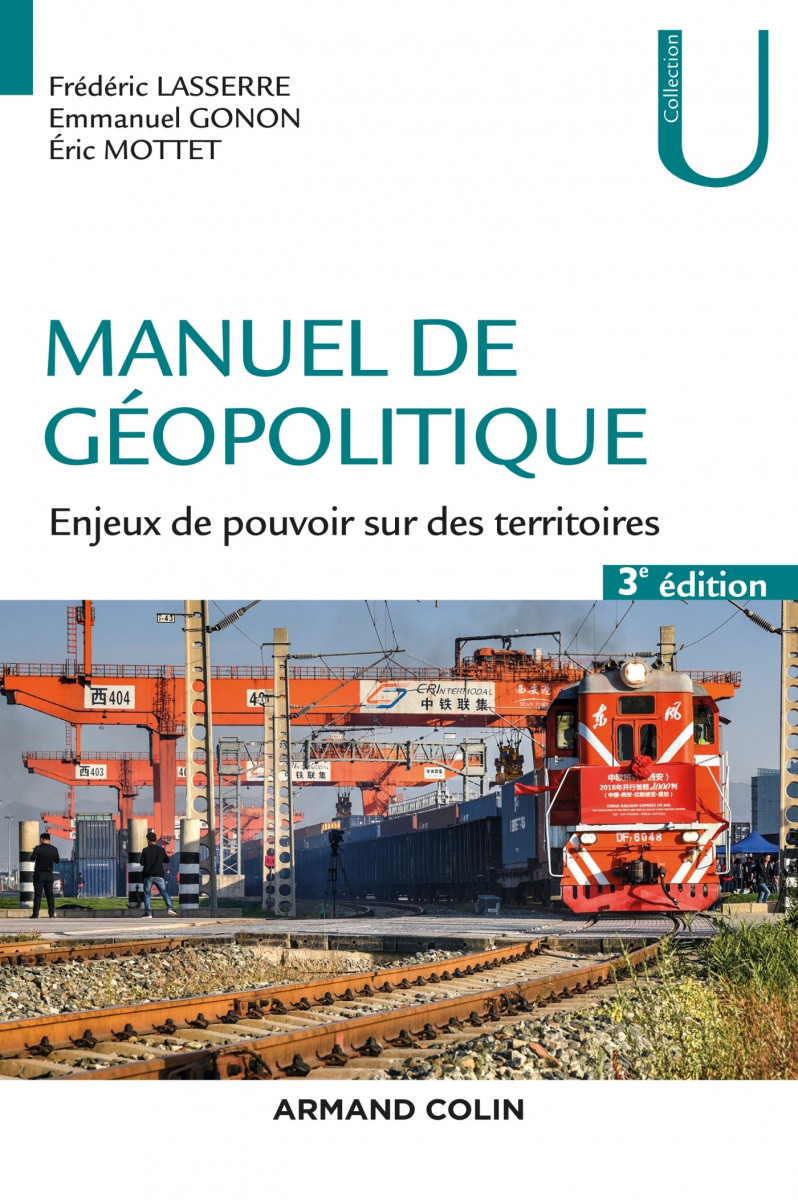Our thematic selections - Friday 18 November 2022
Sources in geopolitics

Definition and reference material
Geopolitics have been defined as the study of geographical parameters that can influence power relationships in international relations. Having emerged as a science in the 19th century at the same time as economics, sociology and psychology, geopolitics has evolved during the 20th century, successively marked by imperialist confrontations, the Cold War and multilateralism. The discipline has recently been renewed with the relative fading of inter-state confrontations vis-à-vis other power relationships, whose fluctuations are linked to the accelerated global circulation of innovation and capital. According to Yves Lacoste, "Geopolitics means any power rivalry over or for territory".
The sources selected below are mainly in English or bilingual, in order to facilitate their consultation by an international audience. They can be consulted from the ESSEC K-lab website for members of the institution, or freely available on the Internet. First, a few reference manuals are presented to help understand the stakes of geopolitics as a discipline, then general sources, either on a global scale or on multiple themes, and finally specialized sources by region of the world and precise theme.
For more information on the history of the the historically located notion of geopolitics, see: Introduction à la géopolitique (Amaël Cattaruzza, in French).
Example of a textbook, available online via the CAIRN resource on the K-lab website (in french):
 |
Manuel de géopolitique : Enjeux de pouvoir sur des territoires Cet ouvrage propose une partie de définition. |
More textbooks referenced by our Discovery tool and available at ESSEC.
As we can see in this zoom on resources, geopolitics is not limited to relations between States. In order to enrich your search keywords, which are as many ways of accessing varied and relevant documents according to the issues to be documented, you will find it useful to consult :
- the index of specialized journals
- the journal watch
- the monograph reviews when they are published in bookstores
In order to understand geopolitical issues, it is necessary to understand the way of thinking of the other, in what its representations can be different. You will have recourse to the foreign press, which can be consulted for example in Factiva (more than 22 languages), and which can be understood via automatic translation tools (do not forget to specify this in your academic work), but also to the sources in geopolitics by regions of the world and countries identified in this zoom, which sometimes bring different insights from those of your country of origin and the great world powers.

Be aware that, although they do not emphasize it, search algorithms such as Google's personalize their results based on the country you are in.
Finally, although it is preferable to consult national or international press sources, the local press can sometimes shed light on local issues that concern it, just as it can bring in experts to speak on national or international issues for its very large audience:

Those settings are available in Europresse:

Do not forget that geopolitical actors are not only States. They can also be large international organizations such as companies, NGOs, influence groups of various origins, etc., or more local ones. In this respect, you can consult the specialized sources in Factiva, emanating from economic actors or focusing on them (business sources, btoc sources), NGOs, as well as governmental sources. Try to select only articles that are analytical, not just stating facts or repeating press releases.

Generalist resources
Several generalist and more specialized geopolitical journals are available online to ESSEC members via our Discovery tool or our databases of academic articles:
- European journal of international relations
- International organization
- Survival: global survival and policy
- Le Monde diplomatique:
- Foreign policy
- Foreign affairs
- Comparative strategy
- Politique Étrangère (in French)
- Revue Défense Nationale (in French)
- Revue internationale et stratégique (Among the latest issues: Géopolitique et entreprises (2021/1), Géopolitique de la nature (2021/4)…)
- Hérodote : Revue de géographie et de géopolitique (available in French and in English)
Some journals publish an English edition on CAIRN international, such as: Futuribles.
Specialized resources
The K-lab librarians have compiled many sources of information about the various aspects of geopolitics into the following three documents. You can save them to your own Google Drive, or download them in PDF format.
- General geopolitical sites and journals freely available on the Internet
- Geopolitical sites by regions of the world, with many maps
- Sites, journals and thematic monographs in geopolitics
Photo by Nick Fewings on Unsplash



